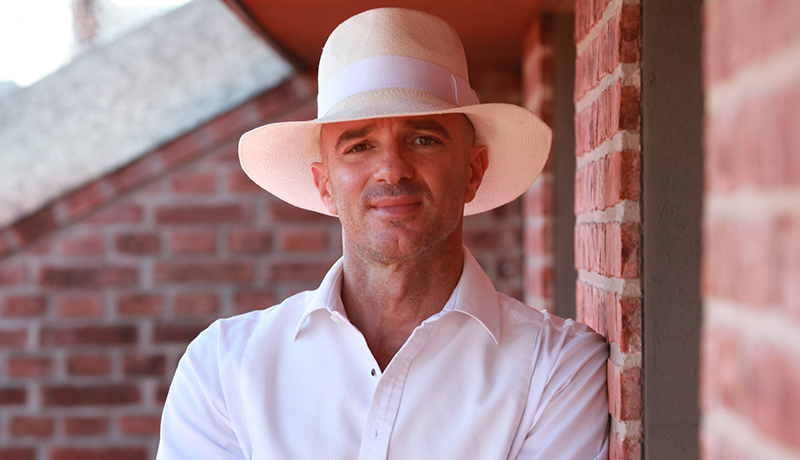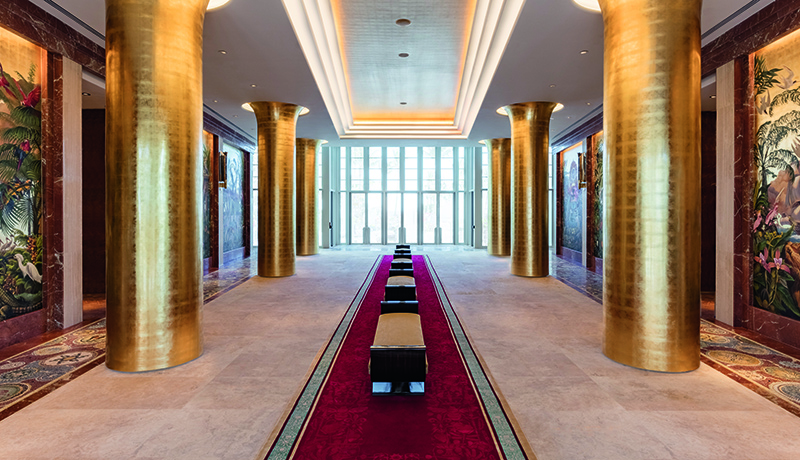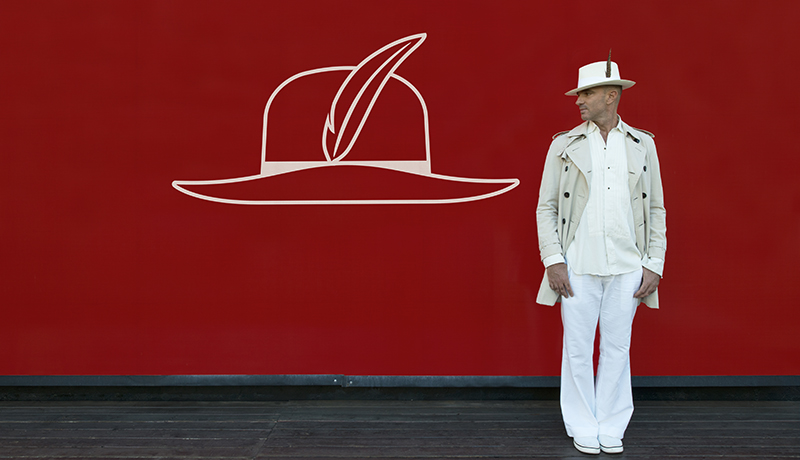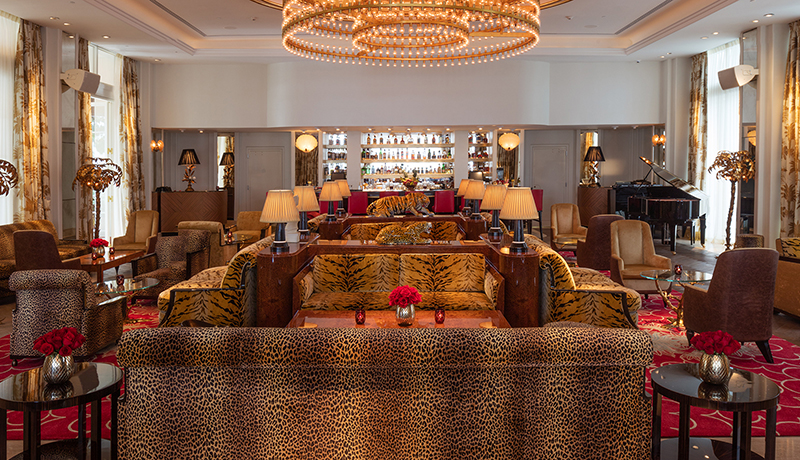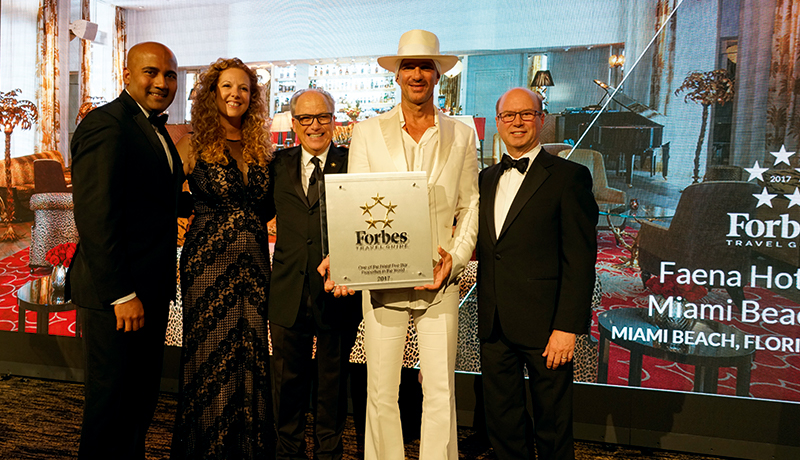
When it comes to fashion, Alan Faena has few contemporaries. No matter how effortlessly stylish the Argentine hotelier makes his signature stark-white suit and Panama hat look at a red carpet event, trust that there are few others who could pull the look off so valiantly.
But as much as Faena stands alone with his wardrobe, he’s the first to admit that he’d be nothing in the hospitality world without his team. Along with business partner Len Blavatnik, he operates two hotels, Forbes Travel Guide Five-Star Faena Hotel Miami Beach and Four-Star Faena Hotel Buenos Aires, that have mesmerized our inspectors’ eyes — an impressive feat for an independent label.
“One thing is to believe and think about it, but another thing is to achieve it,” Faena says of the top rating for the South Florida jewel that opened December 2015. “It gives a lot of strength to all of the independent minds and independent companies to let them know that we can be strong. We got this award because of the efforts of all the team that has been working since the first day we started on this project.”
If we’re talking fashion, though, Faena Miami Beach is but one ensemble in the elaborate armoire that is the Faena District, a multi-block universe of color and curves that also includes the sleek Faena House condos and Faena Forum event venue.
The posh playground only debuted this past winter, but we’re already pulling at Mr. Faena’s dapper coattails to get him to field questions about creativity, his new project and the secrets to his success.
We know that teamwork is important to you. How difficult was it putting the group together to make Faena Hotel Miami Beach work so well?
It’s very difficult. That’s why it’s so valuable for me to get recognition for my team because all of these people were working in very sophisticated companies and brands. They had good salaries at good corporations and everything is good. These people decided to leave these brands and sure paths to follow a dream.
We want to make a revolution in the industry, and they thought very high of me. They trusted me to put it together. They didn’t take the easy path. [Instead] they followed a new path, a new way of doing things, a new way of service, a new voice. We built it together.
Where did this idea of paving a new path come from? Were you simply bored with what you saw in the hotel industry?
I see need — not so much something to invite people to sleep in your room. I envisioned much more. The idea was that people could come to our place for the beauty, the service, the art, the environment, the music and everything that we provide and be elevated, feel better and get the enjoyment in life. That was always the condition.
Every guest that comes to my house at Faena, we’ll try to make them a better person in every way that we touch his senses — from the micro to the macro. That’s why people come to Miami, to elevate and to leave their life behind. They come with an open heart to get the new feeling.
Your hotels are beautifully elaborate. You have a unique personal fashion sense, too. Where did this creative eye come from?
It comes from my heart. I created one of the most important fashion brands in Latin America.
My fashion company was not only about fashion, but it was a generational movement at the time. I did that when I was very young around fashion design and art. I tried to evolve what was coming from myself and put into another industry.
There was a very close relation between the fashion and art with the people to not only use your style and wear your style, but to experience your style.
There are a number of creative minds on your team who share your vision. Tell me how important people like Baz Luhrmann and Philippe Starck are to your empire.
I am the curator working with the best talent in the world. I am a storyteller. I have been collaborating with the best minds in the world, all the way from [architect] Norman Foster to [designer] Rem Koolhaas to [director] Baz Luhrmann and different designers.
Every artist and every architect and designer worked together with me. They took the story that they wanted to take to the world. We have this possibility to create a utopian place and make it a reality. We can create an environment to really change cities.
Buenos Aires will never be the same after what we created with the Faena District in Puerto Madero. I believe that this is the second time that a project in Miami Beach is being called under a name. The first time was the Art Deco District. The second time is the Faena District, a complex of eight blocks that I created with my partner Len Blavatnik.
All these connections between design, architecture, form and curves will really change the perception of things. Like I was telling you, all the way from the micro to the macro.
What aspect of the Faena District are you most pleased with?
I am happy with how the totality of the district looks. All the way from the “Cathedral” [the hotel’s sweeping lobby] to the murals from Juan Gatti — each one is like a mirror to my soul — express our past and our present that’s looking to the future. We are creating history for the city. Those buildings will be there for hundreds of years on the beach, just one block away from the ocean.
When you go to the hotel, you won’t see one 90-degree angle. It’s all curved. All that form allows you to change your perception because it’s not one angle in the district.
Even with the spa, where we bring all the herbs from Latin America [for the services]. Shamans create special products and special massages. Generally, a company creates the spa and a chef creates the food.
It’s a bunch of different great talent but, at the end of the day, you forget the storytelling, the heart and the mind. Faena is bringing one heart, one artistic expression that can stand in different industries.
When a guest checks out of Faena Hotel Miami Beach, what kind of emotions do you want them to have?
I want them to feel that they’re better than they came in all senses. They’ve been impacted by the environment, by the art. It’s a place that, when they come, makes them feel better. We have to make them feel better than how they arrive.
